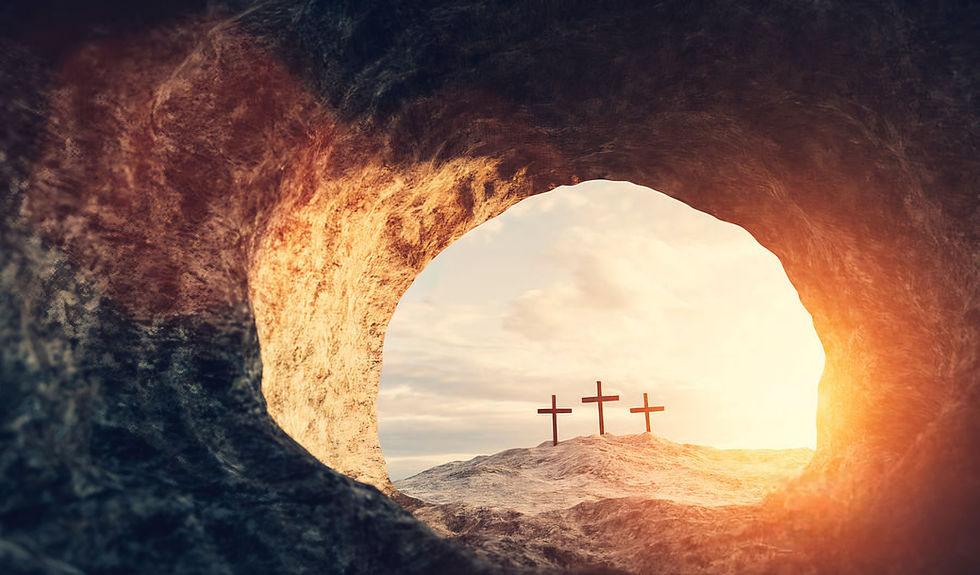The Gift of Myrrh
- Crossfire

- Dec 18, 2022
- 3 min read

If you were to ask me what myrrh was before studying for this advent season, my answer would have simply been “Oh, myrrh? It is what the Wise Men brought Jesus…” That was it. I didn’t know much about it.
I have heard the Christmas story and seen the inaccurate nativity scene with the Wise Men presenting their gifts in the stable for almost 30 years now. I embarrassingly admit, I never stopped to think about these gifts and their meaning. But we all know that God does nothing without a divinely thought-out plan… and there are no coincidences in the Kingdom of God.
Myrrh, a lot like frankincense, is a reddish-brown dried sap from a thorny tree — Commiphora myrrha, also known as C. molmol — that is native to northeastern Africa and southwest Asia. There are many “medicinal” properties of myrrh. To name a few, it's used to kill bacteria, heal sores, and eases pain.
In the Bible, we first see myrrh in Exodus 30:22-25 as the Lord gives instructions to Moses to make the sacred anointing oil. This oil is used to consecrate the Tent of Meeting, the Ark of the Covenant law, the table and all of its articles, the lampstand, the altar of incense, the altar of burnt offering and all the priests.
Myrrh is also used in embalming. Linen is dipped in a mixture of myrrh and aloe where it hardens and makes a casket-like cast around the body of the deceased. We see Nicodemus bring seventy-five pounds of myrrh to be used to wrap Jesus’ body after his crucifixion. (John 19)
There are no coincidences in the story of Jesus. The Wise Men were well-studied men who had been searching and preparing for the arrival of the “King of the Jews”. They had the books of the Old Testament, Numbers (where it tells of the star to follow), Exodus and Leviticus (where we find the instructions for anointing), and Daniel and Isaiah (where we find the prophecies of Jesus' birth and death). We can tell from the small glimpses of these men in scripture that they walked with the Holy Spirit and had obedient listening hearts. These men knew the importance of the child they were going to visit.
I believe the Lord uses these gifts as symbolism to tell His story. We’ve learned earlier about the gold and frankincense gifts. Now with myrrh, we can see they gave a child a gift for a man’s death. Pause and press into that for a moment.
Gold for a king.
Frankincense for divinity.
Myrrh for his humanity through death.
As a planner, I love when scripture shows us glimpses of “this was always the plan”. There was no plan A, B, or C. There has always been Jesus and his birth, life and death for our salvation. If we are being honest, we don’t often like God’s ways and He seems content with being misunderstood. He takes us on journeys that make no sense to us. For instance, when it came time for Jesus’ grand entrance into the world, why was it through a teenage girl and virgin birth to make the story even more scandalous? Why was there no room in the inn for the Savior of the world? Surely this was not a detail that escaped His notice. God’s people were painfully oppressed by the Romans and longed and waited and looked for the prophesied king who would finally deliver them. Yet it would be years after his birth and most of them would miss him because it wasn't what they had planned.
God sometimes answers our prayers one slow, small detail at a time. But he is infinitely loving and wise and He’s a really good father who gives good gifts to his children. There must be a reason He allows such trials, mysteries, and delays to coexist in His goodness.
Our sovereign God is after something much deeper in us than our infinite minds can understand. He is always up to something that we cannot fully discern and something we may not see the value in now. But we will.
God is in the process of conforming us to the image of his Son; teaching us to be comfortable with mystery and to trust that he knew and knows the plan. He shows us little nuggets to help our minds rest in the mystery. Why bring a child a gift used for a man’s death?
Because that was the plan, even at Christmas. Jesus would grow up in a life we wouldn’t expect for the “King of the Jews”. He blamelessly would die a sinner’s death for us. And we would remove that seventy pounds of myrrh, fold his linen and walk out of that tomb in the garden with death defeated in his hands.



Comments